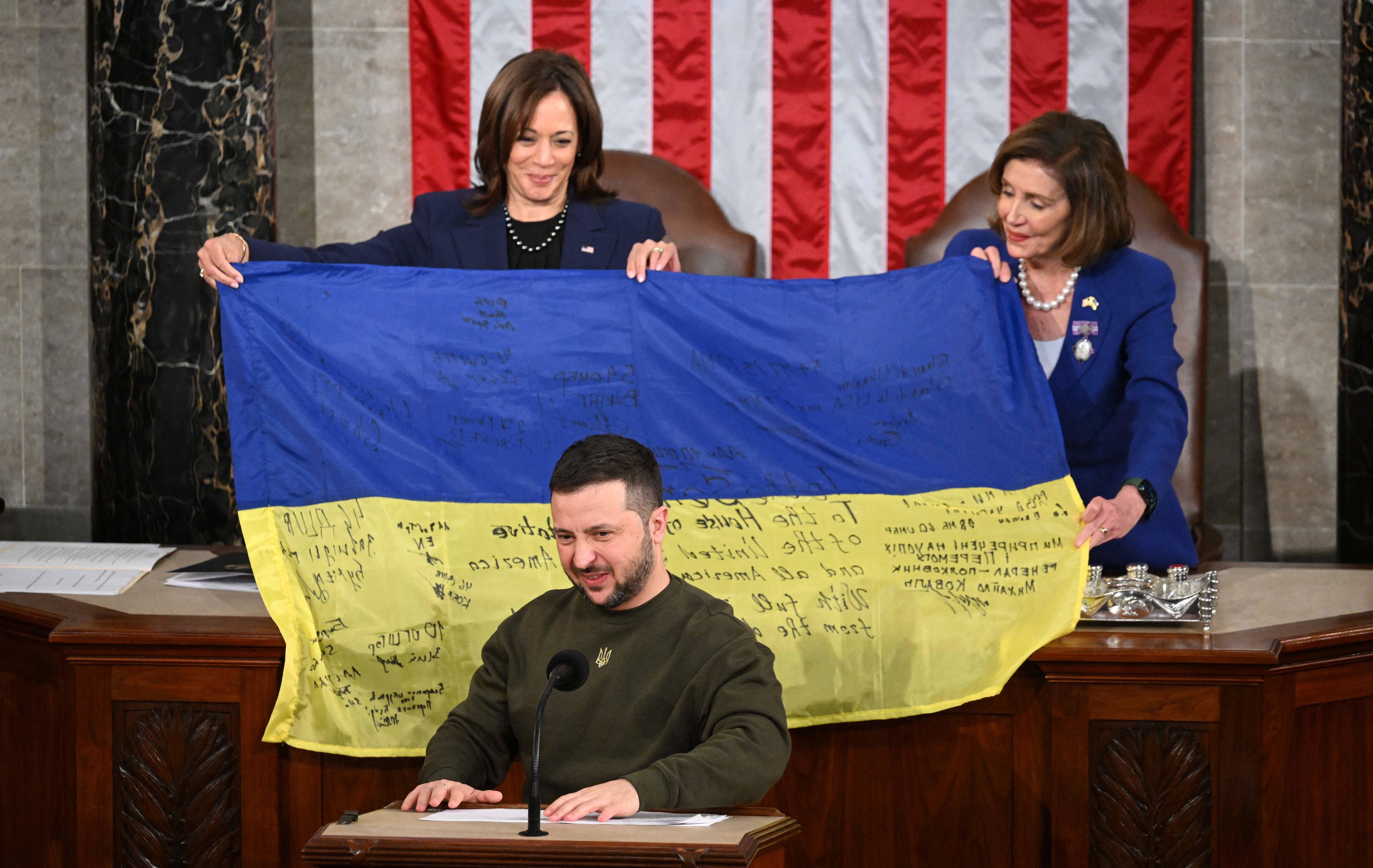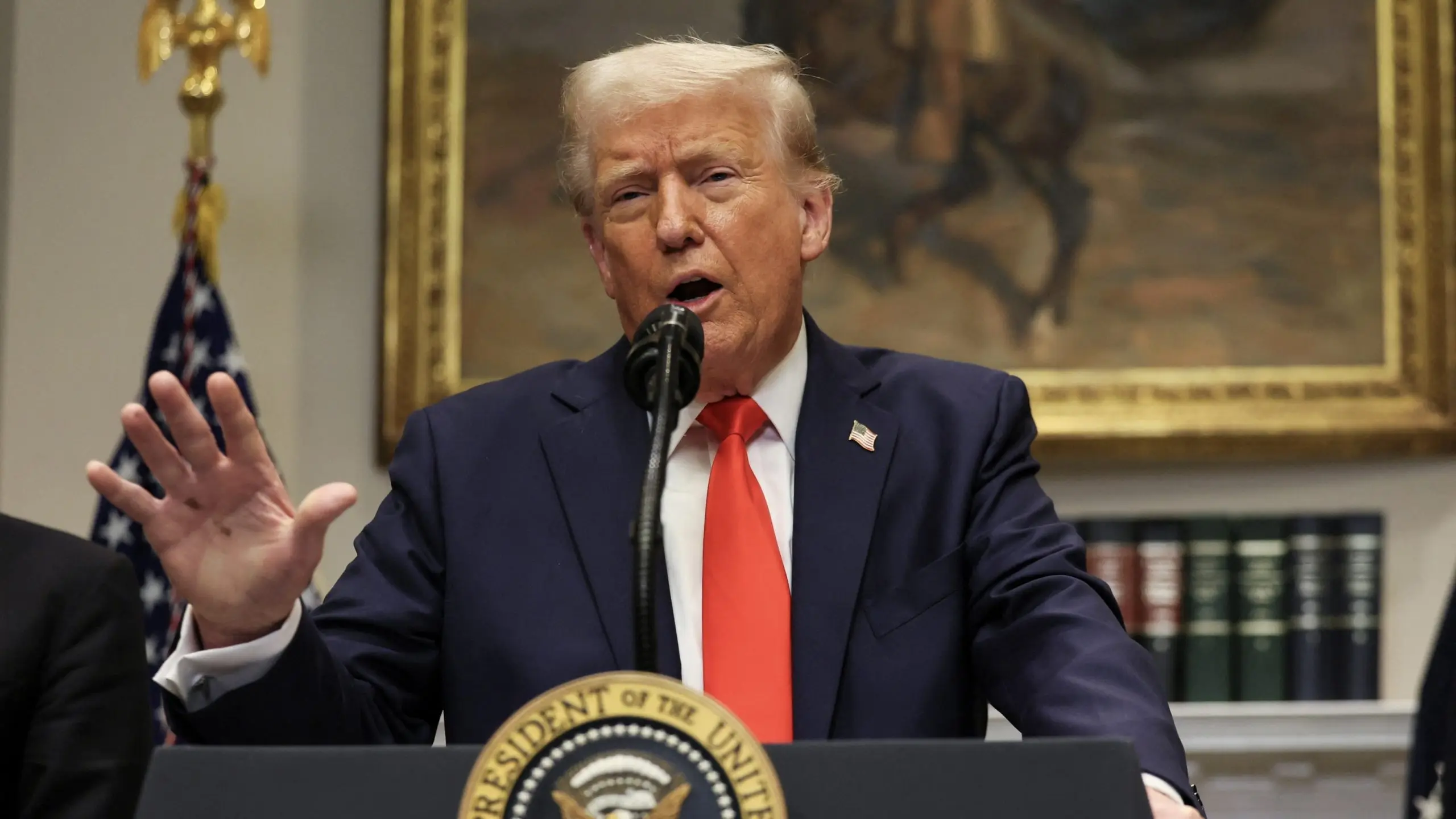The Dogs of War Sit Set to Slip
The greatest threat to peace is posed by those who claim to oppose going to war while demanding that the U.S. intervene militarily.

Western governments expressed shock at Russia’s blockade of Ukrainian food shipments and missile attacks on Odessa’s port facilities. The consequences are terrible, but as Gen. William Tecumseh Sherman famously declared: “War is hell.”
Afghans, Iraqis, Libyans, and Vietnamese learned this lesson the hard way in America’s recent conflicts. Western nations have imposed starvation blockades, reduced cities to fire and ruin, and dropped atomic bombs on civilians when they have deemed it necessary. Even the most enlightened powers have killed promiscuously. And Russia’s President Vladimir Putin is anything but enlightened.
There has been much discussion about finding a way to renew the grain deal, which had allowed Kiev to sell its production. But diplomatic pressure is unlikely to change Putin’s mind. At the recent meeting of African leaders, Moscow pacified the neediest nations by promising Russian grain.
Still, the usual suspects have begun pushing for war. That’s not the way they put it, of course. Rather, they urge aggressive allied military action against Russia that would risk conflict, while assuring the public that there is no danger, nothing to see, so let the war-happy hawks do their worst.
For instance, James Stavridis, former NATO commander, advocates that the U.S. (mainly) and its allies effectively, if not formally, enter the war by
bundling the merchant craft into three-to-five ship convoys, each escorted by a couple of guided-missile warships. There would be a significant air component to carry out patrols tracking the location of the Russian Black Sea Fleet—which operates largely out of ports in occupied Crimea—and to respond to possible Russian air attacks on the ships. Several squadrons of fighters could be assigned to NATO bases in northern Turkey or, more likely, Romania and Bulgaria. Satellite command-and-control would be necessary; air and naval drones could be integrated.
Moscow would be fully entitled to respond militarily, but, Stavridis says, don’t worry, be happy: “Putin would fume, sputter and threaten—but is unlikely to take on NATO or a US-led coalition of Black Sea warships in direct combat.” What if Stavridis was wrong? As he reluctantly admitted, there are obvious risks:
It would bring Russia and Ukraine’s Western supporters into direct confrontation, if not necessarily combat. It would be crucial, before starting the mission, to give a public explanation of its intent and scope, making clear to Russia that we are not looking for a fight but will do what we must to defend the convoys. There are other risks as well. Turkey, which controls passage to the Black Sea, might prove politically reluctant to cooperate. And there is the possibility of an inadvertent incident of “collateral damage.”
Other than that, what could possibly go wrong?
Stavridis compared confronting Russia today with the 1980s reflagging of Kuwaiti oil tankers during the Iran-Iraq war. Washington then allied with the aggressor, Iraq’s Saddam Hussein, who was being financed by Kuwait. Iran did not challenge the U.S., but, of course, the former did not possess nuclear weapons. That experience may be one reason Tehran is interested in developing them.
Andreas Umland of the Swedish Institute of International Affairs offered a similar idea in March, a no-fly zone against unmanned vehicles over Ukraine “to secure its food production and delivery.” No need to worry, he insisted, about the consequences of actively intervening in a very hot war: “Russia does not use manned combat aircraft in its attacks in the Ukrainian hinterland. If Western fighter jets and anti-aircraft weapons hit Russian flying objects, they will not kill Russian service members.”
Others have proposed going much further. The Ukrainian government demanded a full no-fly zone from essentially day one. Some U.S. and allied policymakers agreed. Sen. Roger Wicker, a Republican from Mississippi who previously talked recklessly of using nuclear weapons against Russia, opined: “Clearly, in the absence of a U.N. resolution, which Russia would veto, a strong coalition of like-minded nations should step in and seriously consider this.” So did then-Rep. Adam Kinzinger.
To enforce such a zone would require not only downing Russian planes, but destroying anti-aircraft systems in Russia as well as Ukraine. To assume that Moscow would blithely accept the destruction of its military by Washington in the midst of a war Putin and other Russian leaders viewed as existential suggests a flight from reality. Even scarier, however, have been discussions over how the U.S. might, indeed, should respond if Moscow used nuclear weapons of some sort in some fashion.
For instance, David Petraeus, former military commander and CIA director, before his guilty plea over spilling secrets in pillow talk with his mistress, is back in Washington offering advice. On this issue, he observed: “Just to give you a hypothetical, we would respond by leading a NATO—a collective—effort that would take out every Russian conventional force that we can see and identify on the battlefield in Ukraine and also in Crimea and every ship in the Black Sea.” Similar ideas, such as a full-scale retaliatory air assault on Moscow’s military, were voiced at a Jamestown Foundation discussion of Russia’s nuclear potential.
Petraeus insisted that there was no reason to fret about a nuclear World War III, since his proposal “does not expand. It is not nuclear for nuclear. You don’t get into a nuclear escalation here but you have to show that this cannot be accepted in any way.” At the Jamestown event, advocates of a massive military response were equally certain that Moscow would do nothing as the U.S. destroyed Russia’s status as a great power and Putin’s credibility as a serious leader. To call this a wild, even mad gamble would be a vast understatement.
It is doubtful that any Western policymaker has good insight into Putin’s thinking, as well as the dynamic of the political forces around him. But it long has been evident that he faces more domestic criticism from radical nationalists than from largely nonexistent Western-friendly liberals. No doubt, Putin and those around him raise the specter of nuclear conflict to deter greater allied involvement in the war, but there almost certainly is a point when a serious threat to his nation, regime, or rule would push him toward nuclear use.
Russia’s “special military operation” is unjustified and criminal, but that does not set it apart from similar wars around the world, including ones launched or backed by the U.S. and its allies (Pakistan-India, Iraq-Iran, U.S.-Iraq, Saudi Arabia-Yemen). Nor is Ukraine vital for American or even European security. Before becoming independent in 1991, the territory spent most of the preceding two centuries under Moscow, through the Russian Empire and then the Soviet Union. No allied government believed that the liberation of Kiev was a vital interest worth war.
Allied cynicism reached its apogee in recent decades. Despite claims of betrayal, the signers of the 1994 Budapest Memorandum, most importantly Washington, offered no security guarantees in return for Ukraine’s promise to relinquish its nuclear weapons. The agreement was not a Senate-ratified treaty and pledged only to go “to seek immediate United Nations Security Council action to provide assistance to Ukraine… if Ukraine should become a victim of an act of aggression or an object of a threat of aggression in which nuclear weapons are used.” This was meaningless boilerplate intended to provide a domestic fig leaf to win Kiev’s approval. No one in the West was prepared to fight for Ukraine.
Similar was the saga of NATO membership. Although the George W. Bush administration pressed for the 2008 commitment to eventually induct Kiev, no one else wanted to add Ukraine. Nor did succeeding U.S. presidents. Hence the allies spent 14 years lying to Ukraine, expressing support for an action they never intended to take. That is why NATO, and especially its most important member, refused to fulfill its past promises at the alliance’s recent Vilnius summit, even after Ukraine was attacked.
Claims that Putin is another Hitler or Stalin, ready to conquer the rest of Europe and perhaps the entire known world if he can defeat Ukraine, are just silly. He has shown no interest in doing a reverse Napoleon and his military has demonstrated no ability to do so. The continent’s vulnerability reflects the decisions of European governments not to take security seriously since they can rely on American lives and money. Washington should tell other European states that it will no longer go to war on their behalf, forcing them to act.
If Ukraine does not constitute a vital or existential interest that would warrant use of military force, then the U.S. should not take steps that would involve a significant risk of war, and especially nuclear escalation. Especially since it is widely believed that Moscow has a lower threshold for employment of nuclear weapons since its conventional forces are inferior to those in the West. No one wants to fight World War III, but at some point conflict could seem unavoidable—and no one knows what that point is. Heedlessly intervening in Russia’s war is likely to discover the answer the hard way.
The Russo-Ukraine war is a great tragedy. But Washington’s primary duty is to the American people. And that means staying out of a conflict that is not their own. The greatest threat to peace today is posed by those who claim to oppose going to war while demanding that the U.S. intervene militarily. No amount of rhetorical legerdemain will deliver a costless American victory over Russia.
The post The Dogs of War Sit Set to Slip appeared first on The American Conservative.
Shop For Night Vision | See more…
Shop For Survival Gear | See more…
-
Sale!

Portable Mini Water Filter Straw Survival Water Purifier
Original price was: $29.99.$14.99Current price is: $14.99. Add to cart -
Sale!

Tactical Camo Nylon Body Armor Hunting Vest With Pouch
Original price was: $49.99.$39.99Current price is: $39.99. Select options This product has multiple variants. The options may be chosen on the product page -
Sale!

Quick Slow Release Paramedic Survival Emergency Tourniquet Buckle
Original price was: $14.99.$7.99Current price is: $7.99. Add to cart

















































